8. Sergio Leone
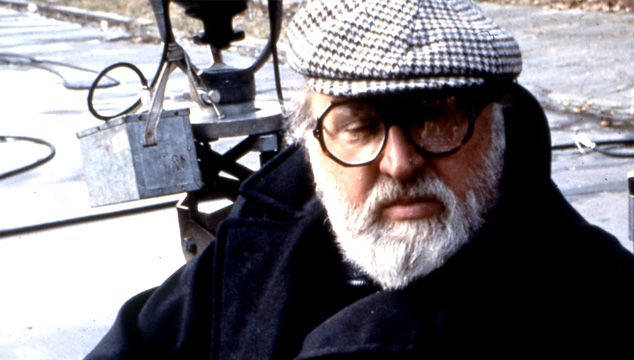
Leone was born on January 3rd, 1929 in Rome, Lazio, Italy. He died on April 30th, 1989 in Rome, Lazio, Italy.
His complete filmography: “The Colossus Of Rhodes” (1961), “A Fistful Of Dollars” (1964), “For A Few Dollars More” (1965), “The Good, The Bad And The Ugly” (1966), “Once Upon A Time In The West” (1968), “Once Upon A Time In The Revolution” (1971), “Once Upon A Time In America” (1984).
He was the son of director Vincenzo Leone, who worked under the pseudonym Roberto Roberti, and silent cinema actress Edvige Valcarenghi.
After seeing his father work, the young Leone decided school was a waste of time and started making his first attempts to enter the world of cinema. He began working as the assistant of Vittorio De Sica when he made “The Bicycle Thief” (1948). He was also the assistant director on movies like “Quo Vadis” (1951) and “Ben-Hur” (1959).
His final and most important training came, however, when director Mario Bonnard was unable to finish directing the film “The Last Days Of Pompeii” (1959) and Leone was therefore asked to complete the film.
“A Fistful Of Dollars” was one of the first Spaghetti Westerns and the first to have a broad, international, artistic, critical and commercial appeal, interest and recognition.
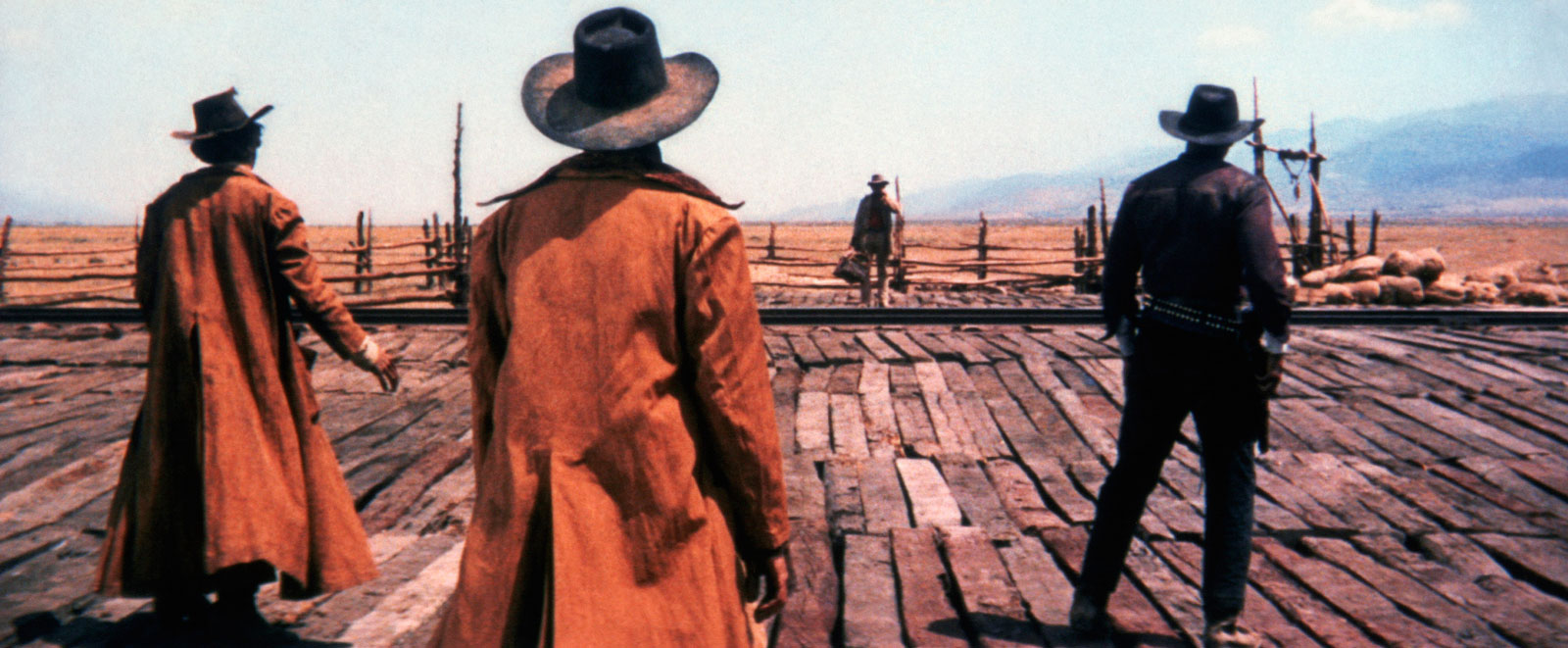
However, Leone’s biggest game-changer came four years later in 1968, and its title is “Once Upon A Time In The West”. With it he subverted, reversed and forever changed the myth of the US Western in cinema and paved the way for posterior revisionist Westerns like Peckinpah’s “The Wild Bunch” (1969) and “Pat Garrett and Billy The Kid” (1973).
9. Djibril Diop Mambéty

Membety was born on January 23rd, 1945 in Colobane, Dakar, Senegal. He died on July 23rd, 1998 in Paris, France.
His complete filmography: “Touki Bouki” (1973), “Parlons Grand-Mère” (1989) and “Hyenas” (1992).
Mambéty was a filmmaker, actor, composer, poet and orator.
When he was 24 years old, without having had any prior training, he made his first short film, “City Of Contrasts” (1969), which was followed by another short, “Badou Boy” (1970), making Mambéty the recipient of the Silver Tanit Award at the 1970 Carthage Film Festival in Tunisia.
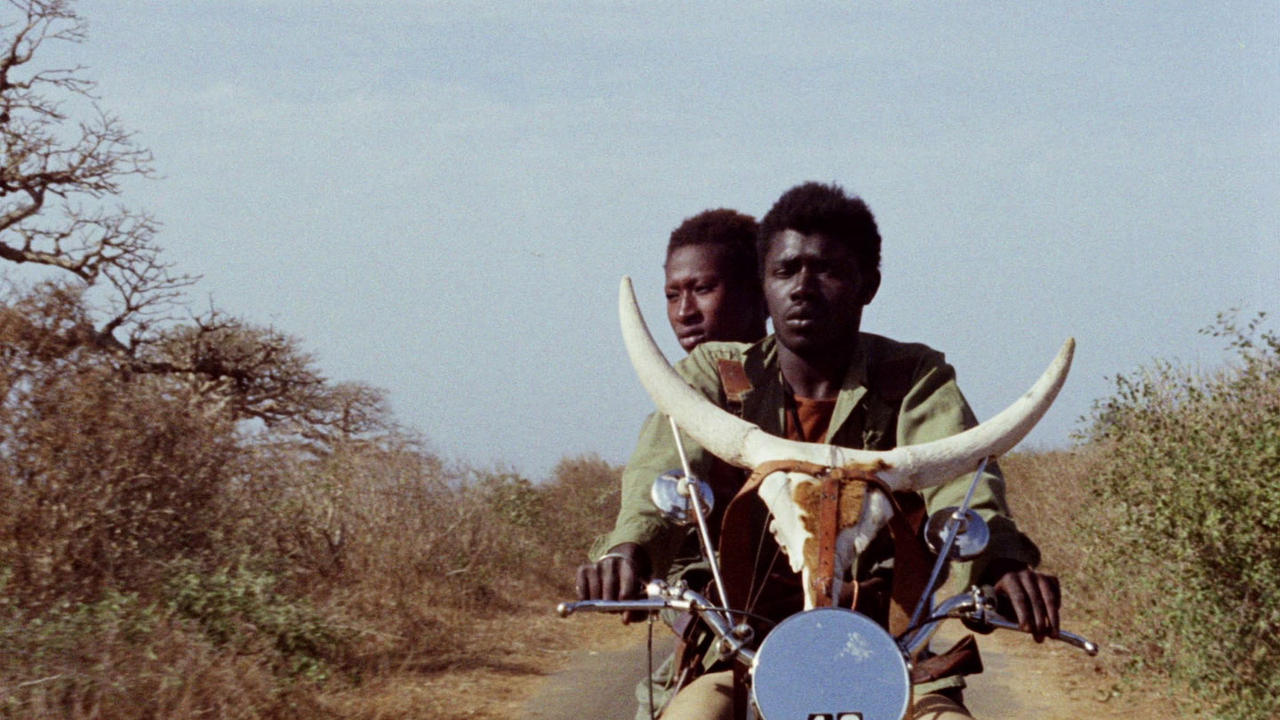
Mambéty’s work deals with the social and political issues of his country in particular, and Africa in general. He was preoccupied with making dynamic, fast-paced, relevant, powerful, resonant films that would make an impact on the people who saw them.
10. Maurice Pialat
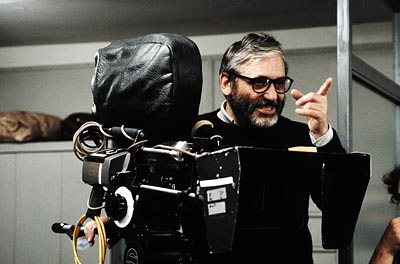
Pialat was born on August 31st, 1925 in Cunlhat, Puy-de-Dôme, France. He died on January, 11th, 2003 in Paris, France.
His complete filmography: “Naked Childhood” (1968), “We Won’t Grow Old Together” (1972), “The Mouth Agape” (1974), “Graduate First” (1979), “Loulou” (1080), “To Our Loves” (1983), “Police” (1985), “Under The Sun Of Satan” (1987), “Van Gogh” (1991) and “Le Garçu” (1995).
Just like his biggest master and idol, Robert Bresson, Pialat started out as a painter, but was forced to face no success in that enterprise. He made his first short, “Love Exists” in 1960, at 35 years old.
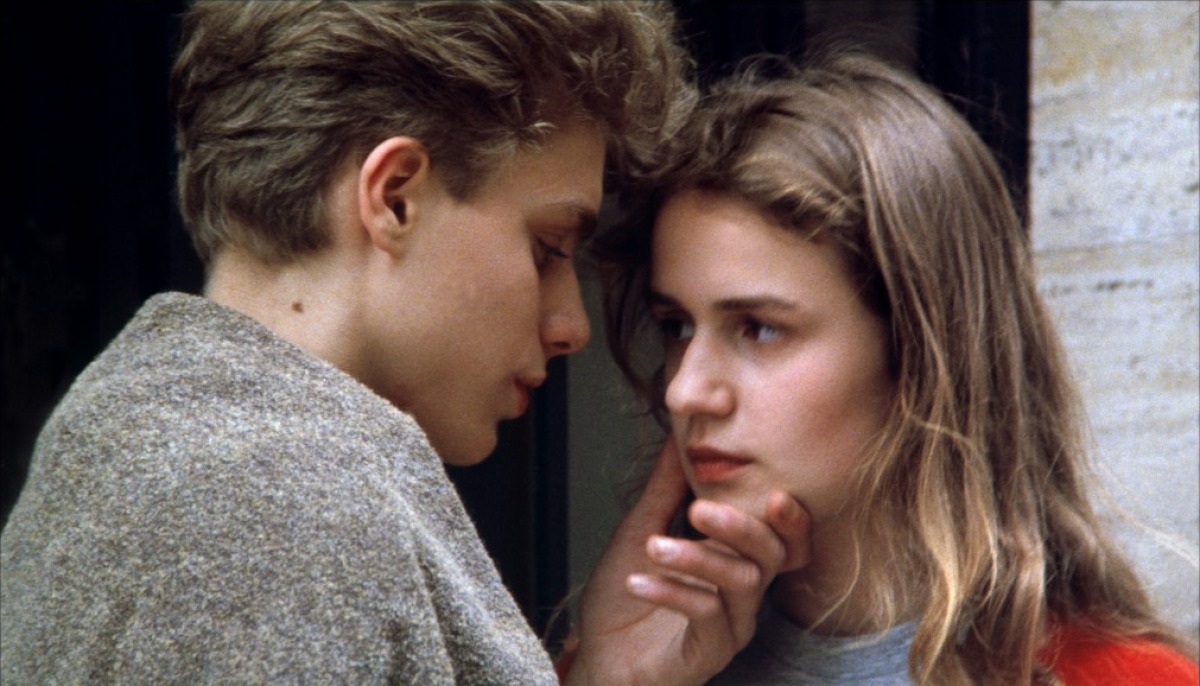
Pialat’s beautiful and amazing work is characterized by a desire to portray human experience as it is on film, without artificiality, without sentimentalism, and without ridiculous, failed attempts at so-called “realism”. He often favored the use of long takes. Everything he did was in benefit of capturing what it feels like and what it is to be a human in this world.
11. Leni Riefenstahl
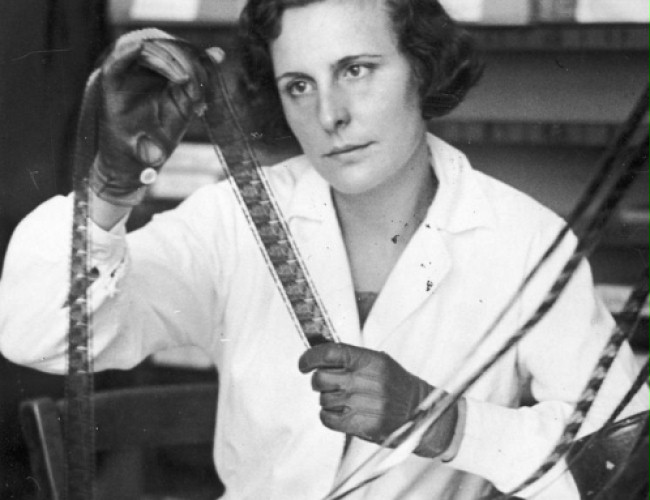
Riefenstahl was born on August 22nd, 1902 in Berlin, Germany. She died on September 8th, 2003 in Pöcking, Bavaria, Germany.
Her complete filmography: “The Blue Light” (1932), “The Victory Of Faith” (1933), “The Triumph Of The Will” (1935), “Olympia” (1938) and “Lowlands” (1954).
Swimmer, alpinist, painter, dancer, actress, photographer, camera operator, editor, producer, screenwriter and film director Leni Riefenstahl made her debut feature film “The Blue Light” in 1932, directing, writing, producing, editing and starring in the film.
The film was so successful even the Führer, Adolf Hitler himself, a huge cinephile, was among its admirers. He admired it so much he offered Riefenstahl the role of the official filmmaker and documenter of the Third Reich. And the official filmmaker and documenter of the Third Reich she became.
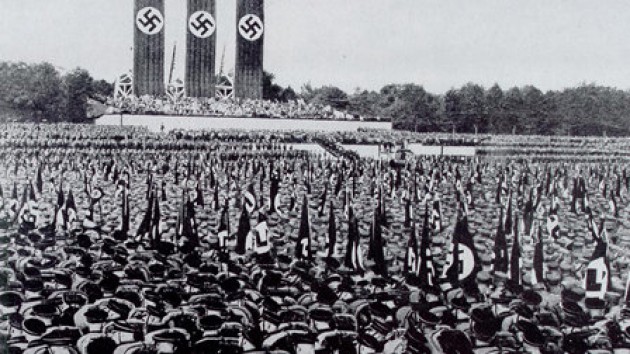
Her first propaganda film for the Third Reich was her sophomore effort, “The Victory Of Faith” in 1933. Two years later she made “The Triumph Of The Will” and three years after that, “Olympia”. The rest is history.
The innovations and advances Riefenstahl made and achieved in the medium of cinema are truly a sight to behold and almost too much to be believed. Nonetheless, they are real, and we can all enjoy them in “The Blue Light” and especially “Olympia”.
12. Andrei Tarkovsky
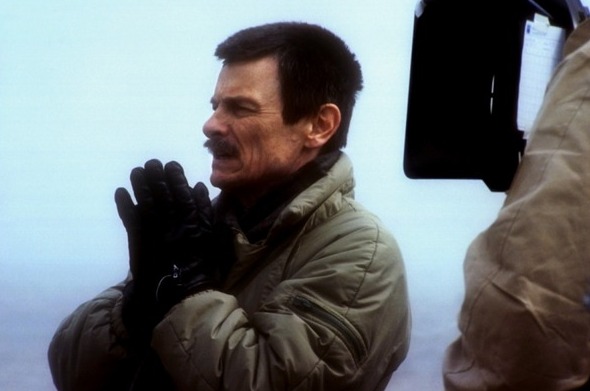
Tarkovsky was born on April 4th, 1932 in Ivanovskaya oblast, Russia. He died on December 29th, 1986 in Paris, France.
His complete filmography: “Ivan’s Childhood” (1962), “Andrei Rublev” (1966), “Solaris” (1972), “The Mirror” (1975), “Stalker” (1979), “Nostalghia” (1983) and “The Sacrifice” (1986).
He was the son of poet and translator Arseny Alexandrovich Tarkovsky, and Maxim Gorky Literature Institute graduate Maria Ivanova Vishnyakova.
At approximately 20 years old, he got involved in a research expedition to the river Kureikye near Turukhansk in the Krasnoyarsk Province, and it was during this time that the young Tarkovsky decided to go to film school. There in film school he met Irma Raush, his first wife, who was in the same class as him.

Tarkovsky’s work is filled with preoccupations with the metaphysical and symbolism. He very frequently worked with natural elements, dreams, the subconscious and their power over man, the obsession with the past and its traumas, Russian history, and his personal religious beliefs.
As we said before in a previous list, no cinephile is truly a cinephile until he’s seen “Andrei Rublev” at least once. After that, “Stalker” and “The Sacrifice” will keep the indescribable spell of the first two films.
13. Béla Tarr
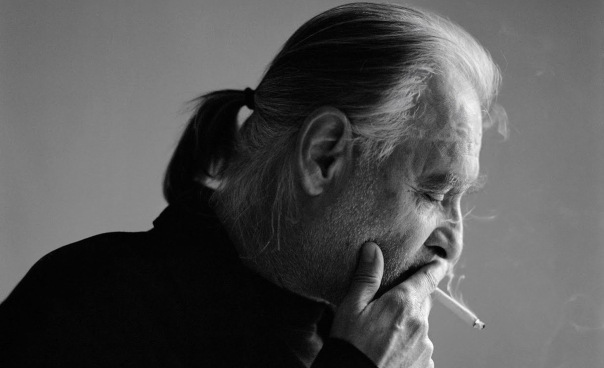
Tarr was born on July 21st, 1955 in Pécs, Hungary.
His complete filmography: “Family Nest” (1977), “The Outsider” (1981), “Macbeth” (1982), “The Prefab People” (1982), “Almanac Of Fall” (1985), “Damnation” (1988), “Sátántangó” (1994), “Werckmeister Harmonies” (2000), “The Man From London” (2007) and “The Turin Horse” (2011).
The prophet, the magician, the poet, the philosopher from Hungary. Born in Pécs but raised in Budapest, Tarr is the son of a scenery designer and a woman who worked as a prompter at a theater for more than 50 years.

Tarr always wanted to become a philosopher and considered the first feature films he made to be nothing but a mere hobby. However, due to several circumstances, he ended up becoming a “full-time” filmmaker, to our immense good fortune.
Tarr’s images and gorgeous and scrumptious compositions will be tattooed into the minds of all who sees them until their deaths. Behold one of the very last of the Truly Greats.
14. Jacques Tati
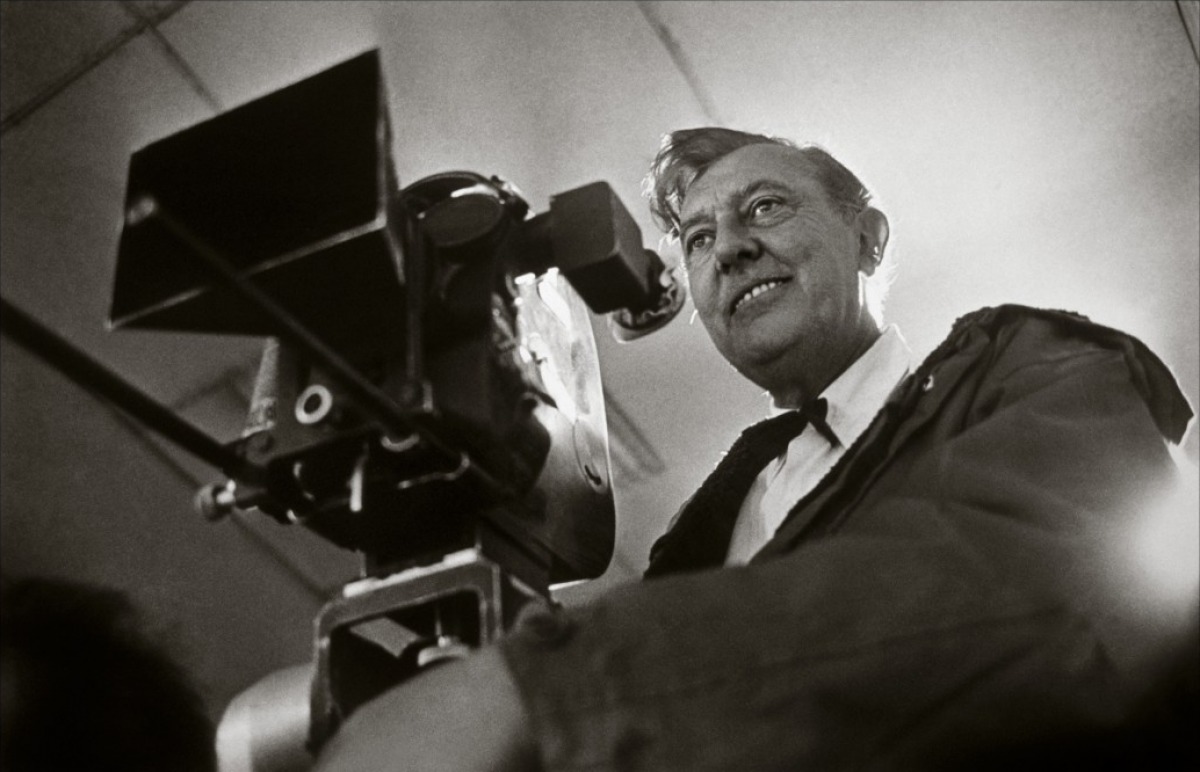
Tati was born on October 9th, 1907 in Le Pecq, Yvelines, France. He died on November 4th, 1982 in Paris, France.
His complete filmography: “Holiday” (1949), “Mr. Hulot’s Holiday” (1953), “My Oncle” (1958), “Playtime” (1967) and “Traffic” (1971).
Tati was the son of a General of the Imperial Russian Army and military attaché to the Russian Embassy in Paris and part of a Russian noble family of patrilineal Rurikid descent, and a French woman named Rose Anathalie Alinquant.
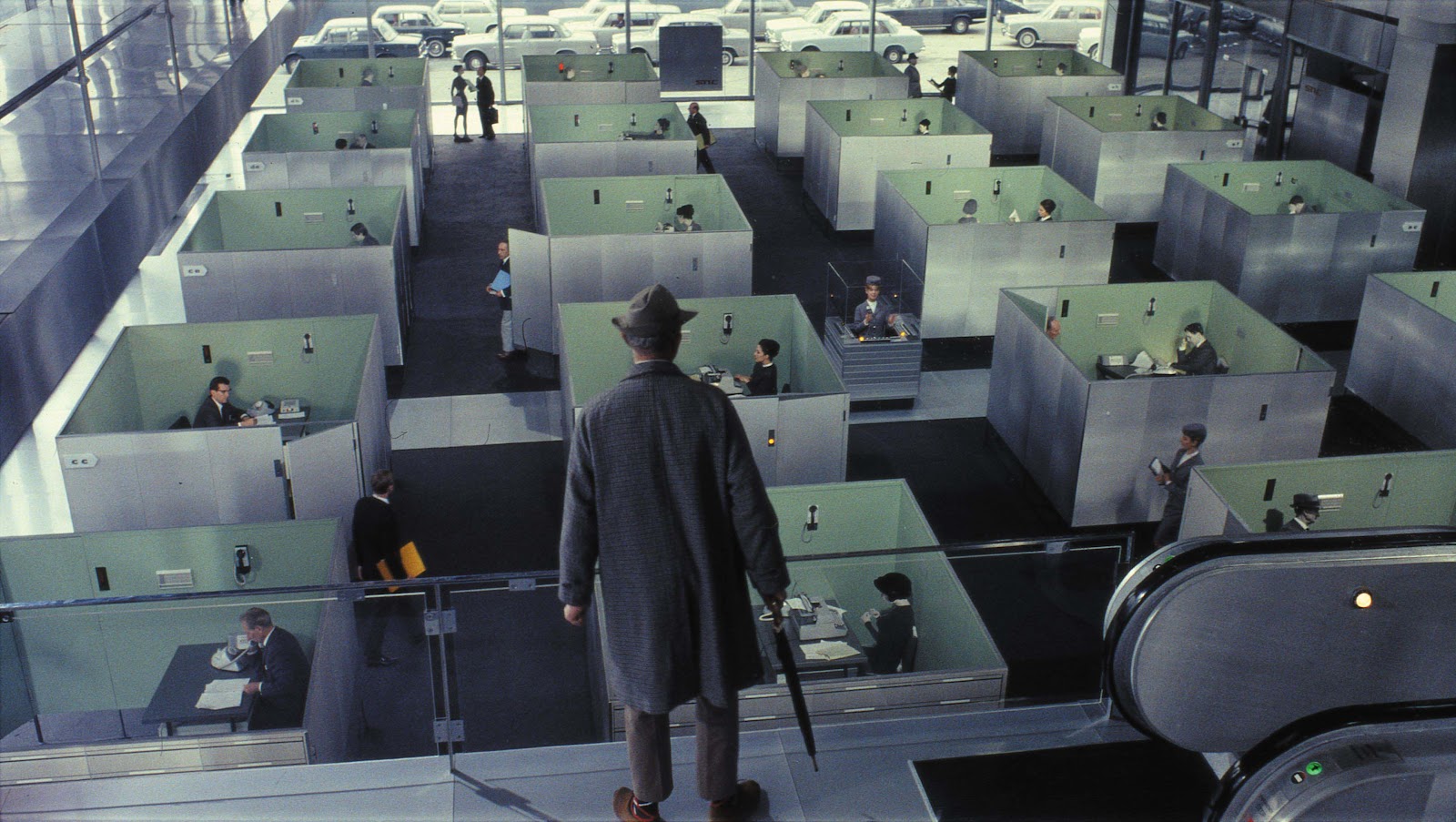
Tati started his career in show business as a cabaret performer, much to the chagrin of his parents. Eventually he was even drafted when the Second World War was underway.
Tati will be forever remembered as the magical Monsieur Hulot, always sporting his raincoat, umbrella and pipe, with his source of infinite laughs and bittersweet moments, whom he portrayed in all but his first and last movies.
15. Jean Vigo
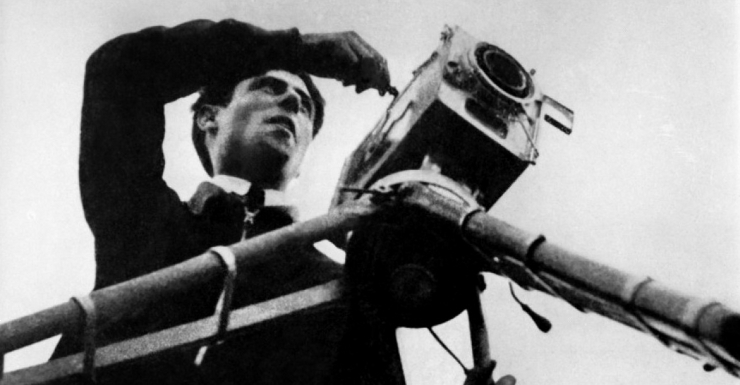
Vigo was born on April 26th, 1905 in Paris, France. He died on October 5th, 1934 in Paris, France.
His complete filmography: “L’Atalante” (1934).
He was the son of militant anarchist Eugeni Bonaventura De Vigo I Sallés, and a woman named Emily Clero. Vigo’s father was murdered when he was 12 years old.
Vigo’s enormous if brief contributions to cinema have been rightfully called “anarchic”, and that “by showing certain basic aspects of a city, a way of life is put on trial… the last gasps of a society so lost in its escapism that it sickens you and makes you sympathetic to a revolutionary solution”.
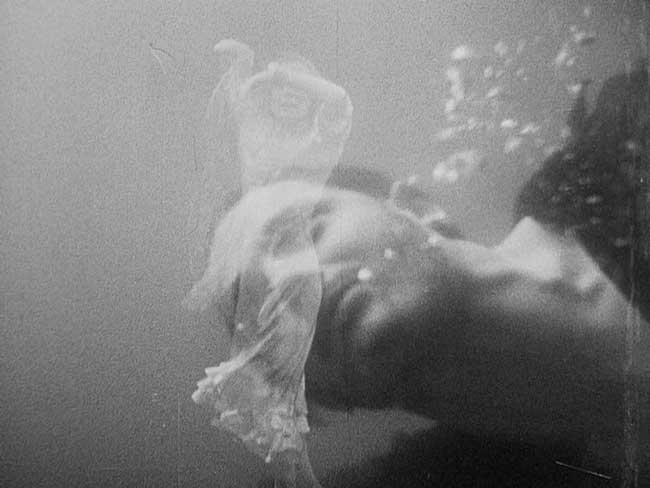
“L’Atalante” has been named one of the 10 Greatest Films Of All Time.
He has been credited with effortlessly mixing naturalistic and realistic settings and ways of shooting with oneiric and fantasy-laden situations, and making deceptively “simple” stories into unforgettable masterpieces. He may be long passed, but long live the legacy of Jean Vigo.
Author Bio: Lee Schroeder is a member of the so-called Y Generation. He likes movies, literature, music, photography and Art in general. He also likes to sleep. He doesn’t have facebook, twitter, instagram or linkedin accounts. Make of all this what you will.